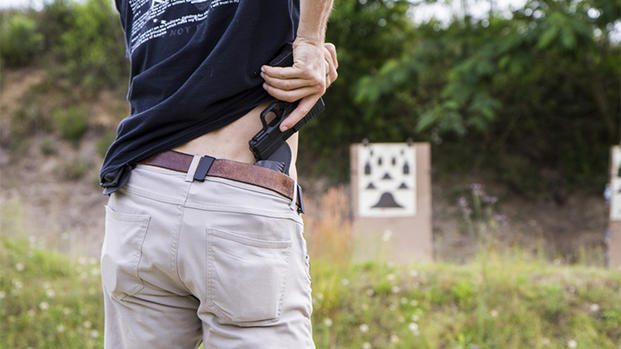After almost a year of discussion and debate, the Defense Department issued concealed carry military rules for private weapons on base. But what does that mean for military spouses?
First, some quick background. After a few attacks on base, including those at Fort Hood in 2009, some suggested that things would be safer if service members were allowed to carry their own personal weapons for protection on base. In the past there's simply been a blanket rule against the practice. Not only could you not carry on base for self defense, but if you live on base you had to cough up any personally owned weapons and keep them at a designated armory.
When we asked you what you thought about expanding concealed carry military base rules, the vast majority of you said the practice should absolutely be permitted.
And now the DoD has changed its tune and is allowing concealed carry on base under some circumstances. What are the rules? Here's what they mean to you.
3 Things to Know: Concealed Carry Military Base Rules
1. Sorry, spouses. The new rule is for troops only. If you were hoping that the new policy would let you conceal carry on base as a military spouse, well, you're out of luck. The new rule only covers designated service members and doesn't expand to family. Your personal weapon will have to stay home or in the armory.
2. This isn't an automatic program -- troops have to apply. The new concealed carry military policy requires those interested to apply for the privilege -- and to do so they must be over 21, the policy states. They also may need to be licensed to conceal carry in whatever state or host nation in which their base is located. Finally, every service gets to dictate how to apply this new DoD-wide policy, so if your service member is interested in taking part, the best thing he or she can do is take it up the good old chain of command.
3. Your gun, your problems. The policy says that those who conceal carry for self defense under the rules will be accepting liability for whatever happens with their weapon. That means that if your service member is carrying and in some sort of weapon-involved accident, he or she is responsible for whatever happens next, including financial implications.
What do you think of the new rules? Tell us in the comments.











